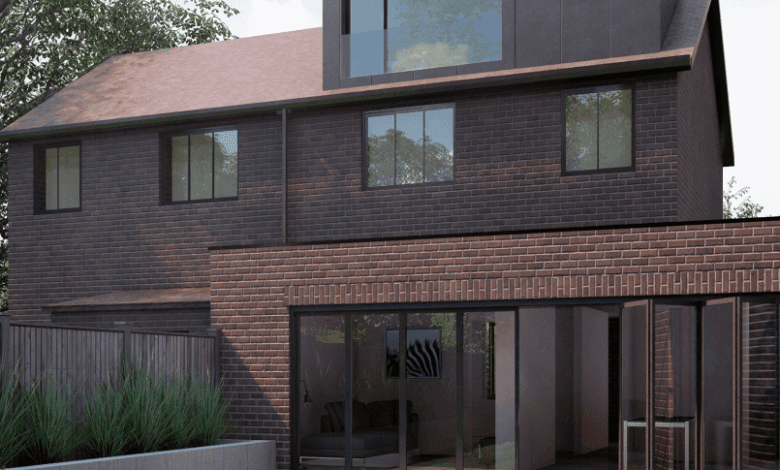How Much Does House Extension Cost in the UK?

Are you considering a house extension in the UK but need clarification on the cost? Look no further! In this article, we will explore the key factors that affect the price of house extensions in london and give you a clear understanding of what to expect. Whether planning a small kitchen extension or a two-story addition, having a ballpark figure in mind can help you make informed decisions and avoid unpleasant surprises.
Before we discuss the specific costs, it’s important to note that the price of a house extension can vary significantly depending on various factors, including the project’s size, location, and complexity. Materials, labour, required permits or architectural drawings can also affect the overall cost.
Read more about the 3 meter house extension cost in the UK.
So, if you’re ready to explore the world of house extensions and discover how to budget for your dream home improvement project, keep reading! We’ll provide valuable insights and tips to ensure you get the most out of your investment.
Factors that Influence the Cost of a House Extension
Several factors influence the cost of a house extension. Understanding these factors will help you estimate the cost of your project more accurately. Let’s look at the key elements that can influence the overall cost of a house extension in the UK.
1. Size and Scope of the Extension
The size and scope of your extension will significantly impact the cost. Determining how much additional space you need and the extension’s purpose is essential. Whether you’re adding a new room, expanding your kitchen, or creating a home office, the size of the extension will affect the materials required, labour costs, and overall complexity of the project.
2. Location of the Property
The location of your property can also influence the cost of a house extension. Different areas in the UK may have varying labor and material costs. Generally, cities tend to be more expensive compared to rural areas. Additionally, if your property is located in a conservation area or has specific planning restrictions, it may require additional permissions and architectural considerations, which can impact the cost.
3. Design and Complexity
The design and complexity of your house extension project will play a role in determining the cost. A single-story extension will generally be more affordable than a multi-story or complex design involving structural changes. It’s important to consider any unique features, such as large windows or intricate roofing, as these can increase costs.
4. Quality of Materials
The quality of materials you choose for your house extension will affect the overall cost. Opting for high-end materials and finishes will naturally increase the budget. However, it’s essential to strike a balance between quality and cost-effectiveness. Consult with professionals to select materials that meet your requirements while staying within your budget.
5. Hiring Professionals
The cost of hiring professionals, such as architects, structural engineers, and builders, should be factored into your budget. Their expertise ensures your house extension is well-designed, structurally sound, and compliant with building regulations. While hiring professionals may add to the overall cost, it is a worthwhile investment to ensure the success of your project.
6. Access and Site Conditions
The accessibility of your property and site conditions can also impact the cost of a house extension. If your property is challenging to access or has limited space for construction equipment, it may require additional labor or specialised equipment, which can increase the overall cost. Similarly, if the site has poor ground conditions, additional groundwork and foundation work may be necessary, adding to the expenses.
Now that we’ve explored the key factors that influence the cost of a house extension, let’s move on to understanding the average cost of house extensions in the UK.
Average Cost of House Extensions in the UK
The cost of a house extension in the UK can vary widely depending on the factors mentioned earlier. However, having a general idea of the average cost is helpful to set realistic expectations for your project. Remember that these figures are estimates, and actual costs may differ based on your specific requirements and location.
Single-Story Extension
On average, a single-story extension in the UK can cost anywhere between £20,000 to £70,000. The cost will depend on factors such as the size of the extension, the materials used, and any additional features or finishes. For example, a basic 4m x 5m single-story extension may cost around £30,000, while a larger extension with higher-end finishes can cost upwards of £50,000.
Two-Story Extension
Due to the additional complexity and structural considerations, a two-story extension generally costs more than a single-story extension. On average, it can range from £40,000 to £100,000 or more. The cost will depend on factors such as the size of the extension, design complexity, materials used, and any additional features or finishes.
Kitchen Extension
A kitchen extension is popular for homeowners looking to create a larger and more functional kitchen space. The cost of a kitchen extension can vary greatly depending on the size, design, and finishes. On average, a kitchen extension in the UK can cost between £20,000 to £60,000. This cost includes plumbing, electrical work, and any necessary kitchen fittings.
Loft Conversion
A loft conversion can be cost-effective if you consider adding living space to your home without extending the footprint. The cost of a loft conversion in the UK can range from £20,000 to £60,000 or more, depending on factors such as the size of the loft, the type of conversion (e.g., dormer, hip-to-gable, or mansard), and the finishes and fixtures.
These are some examples of the average cost for different UK house extensions. It’s important to remember that these figures are estimates, and the final cost will depend on various factors specific to your project. Now, let’s break down the costs of a house extension project.

Cost Breakdown of a House Extension Project
Understanding the cost breakdown of a house extension project can help you allocate your budget effectively. Here’s a breakdown of the critical expenses involved in a typical house extension in the UK.
1. Design and Planning
Before starting your house extension project, you’ll need to factor in the cost of design and planning. This includes hiring an architect or architectural designer to create the plans and drawings and obtaining any necessary planning permission or building regulations approval. On average, the design and planning stage can cost around 10% to 15% of the total project cost.
2. Materials and Construction
The cost of materials and construction will make up a significant portion of your house extension budget. This includes the cost of structural materials, such as timber frames or steel beams, and the cost of external finishes, roofing, windows, doors, and internal fixtures. Materials and construction can account for around 60% to 70% of the total project cost.
3. Labor and Professional Fees
The cost of labor and professional fees should also be considered when budgeting for a house extension. This includes the cost of hiring builders, carpenters, plumbers, electricians, and other tradespeople. Additionally, you may need to hire professionals such as structural engineers or quantity surveyors, whose fees will add to the overall cost. Labor and professional fees account for around 20% to 30% of the total project cost.
4. Contingency
Setting aside a contingency fund when budgeting for a house extension project is always a good idea. This accounts for any unforeseen expenses or changes that may arise during construction. It’s recommended to allocate around 10% to 15% of the total project cost as a contingency fund to ensure you have enough financial flexibility.
Understanding the cost breakdown of a house extension project can help you better plan and allocate your budget. However, there are ways to save on costs without compromising on quality. Let’s explore some tips for budgeting and saving on house extension costs.
Tips for Budgeting and Saving on House Extension Costs
1. Set a Realistic Budget
Before starting your house extension project, setting a realistic budget based on your requirements and financial capabilities is crucial. Research the average costs for similar projects in your area and consult with professionals to understand the potential expenses involved. By setting a clear budget from the outset, you can avoid overspending and make informed decisions throughout the project.
2. Plan Ahead
Proper planning is key to ensuring your house extension project stays within budget. Take the time to consider your design, materials, and finishes carefully. Make a detailed project timeline schedule and consult with professionals to ensure all necessary permits and approvals are obtained. Planning will help avoid costly delays and changes during construction.
3. Get Multiple Quotes
Multiple quotes are essential when hiring professionals and contractors for your house extension. This allows you to compare prices and services to find the best value for your money. However, be cautious of significantly low quotes, which may indicate poor quality or hidden costs. Always check references and reviews to ensure you’re working with reputable professionals.
4. Consider Value Engineering
Value engineering involves finding cost-effective alternatives that meet your design and functionality requirements. Consult with professionals to identify areas where savings can be made without compromising quality. For example, slightly cheaper materials or finishes that still achieve the desired aesthetic can reduce costs without sacrificing the overall result.
5. DIY or Self-Manage
If you have the necessary skills and experience, consider taking on some DIY tasks or self-managing certain aspects of the house extension project. However, be realistic about your capabilities and consult with professionals when needed. Taking on some of the work yourself can help save on labour costs, but it’s vital to ensure that all work is done safely and up to building regulations.
6. Consider Financing Options
Consider exploring financing options if a house extension costs exceed your available funds. This could include taking out a home improvement loan, remortgaging, or utilising government schemes and grants for energy-efficient or sustainable home improvements. Consult financial advisors to determine the best financing option for your situation.
Following these tips lets you budget effectively and save on house extension costs without compromising quality. Remember to plan carefully, conduct thorough research, and consult with professionals.
In conclusion, the cost of a house extension in the UK can vary significantly depending on various factors. You can ensure your house extension project succeeds by understanding the key factors influencing the price, having a clear budget, and following cost-saving tips. Whether you’re looking to create more living space, expand your kitchen, or add value to your property, a well-planned and executed house extension can transform your home and enhance your quality of life. So, go ahead and start planning your dream house extension today!


